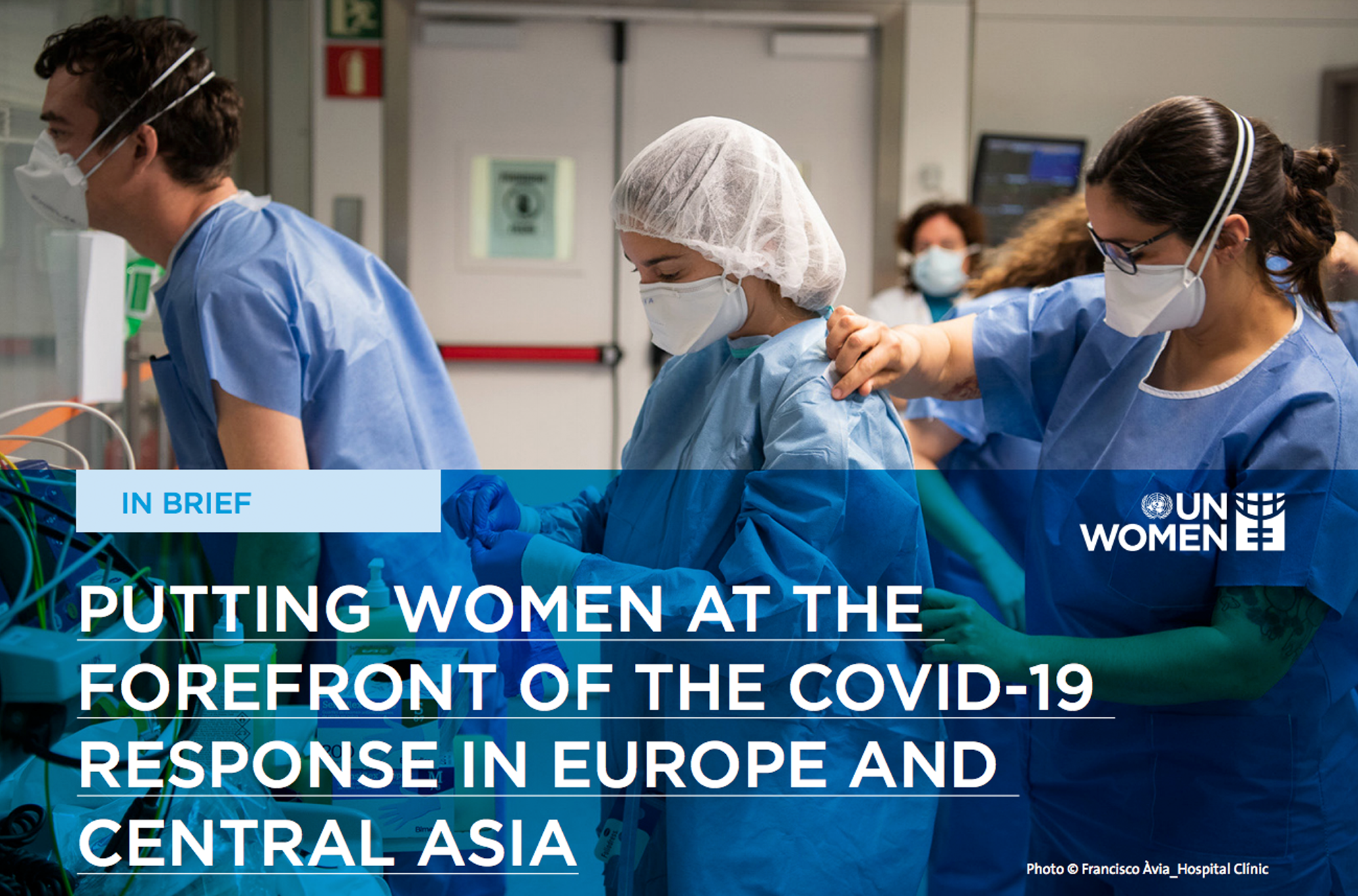
The Challenge
“Covid-19 is causing an unprecedented crisis that is disrupting lives, health, economies and societies. It has altered perceptions of safety and security for millions of people in social isolation, particularly women. The pandemic is the greatest socioeconomic shock since World War II. Covid-19 is not just a health crisis, it is a humanitarian and development crisis with the worst impact expected in fragile contexts and conflict settings. All 18 countries and territories (Albania, Armenia, Azerbaijan, Belarus, Bosnia & Herzegovina, Georgia, Moldova, Montenegro, Kazakhstan, Kosovo (under UN Resolution), Kyrgyzstan, North Macedonia, Ukraine, Serbia, Tajikistan, Turkmenistan, Uzbekistan, Turkey) supported by UN Women in Europe and Central Asia are affected, with Turkey at the epicentre having reported more than 27,000 cases as of 6 April 2020, according to the WHO.
“Evidence shows that the impacts and implications of Covid-19 are different for women and men, and that they are exacerbating existing gender inequalities and posing an additional burden for women and girls:
• Women are facing increased intimate partner violence and other forms of domestic violence while confined at home due to imposed movement restrictions, social distancing and the suspension of most businesses and social services. Support to survivors is disrupted with overburdened health and support workers responding to Covid -19 cases. Data from governments and women’s organizations are showing a spike in reported cases of violence. In China, domestic violence cases surged threefold when millions of people were under Covid-19 quarantine. In Europe, cases of domestic violence are also increasing at an alarming rate – France 30% increase, Spain 18% and England up to 20%.3 Of concern are the invisible victims and how to reach women and girls isolated with their abusers. Once isolation ends, the lasting economic fallout can expose women to sexual exploitation, as witnessed during the 2013–2016 Ebola outbreak.
• Women are hit harder by economic impacts caused by Covid-19 because they are more often engaged in short-term, part-time or informal employment which offers limited social security, pension and health insurance. Women on the move – such as refugees, internally displaced populations and irregular migrants – are at an even greater risk of being left behind, with little or no means of ensuring minimum income, food, shelter or safety for the family. If exposed to Covid-19, they may face greater risks due to their limited access to critical health care.
• Exacerbated burdens of unpaid care work on women and girls. With health systems overloaded and schools closed, a greater burden is placed on care and domestic work in the home and that burden lands largely on women and girls.
• Women health-care workers are playing a disproportionate role in responding to Covid-19 as front-line health workers or health and elder-care facility staff. Globally, 70% of workers in the health and social sector are women, and as such they are more likely to be exposed to the virus. They may also face the added physical and psychological stress of balancing paid and unpaid work roles.
“UN Women’s response to COVID-19 is to ensure that gender equality and women’s empowerment are both integrated as a cross-cutting commitment in prevention, response and recovery, and made an integral factor in effective COVID-19 mitigation strategies and actions. Women and girls are critical enablers in such efforts and need to be centrally engaged in driving solutions for COVID-19. In this context, UN Women is building on its existing humanitarian-development efforts, outbreak and disaster response experience and its triple mandate – normative, coordination and programmatic.”
The report goes on to outline the solutions and the approaches that UN Women are taking.
FULL REPORT: UN Women, February 2021



